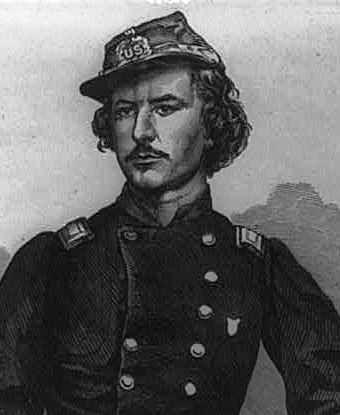Last updated: June 17, 2015
Person
Elmer Ellsworth

Library of Congress
Prior to his becoming the first conspicuous casualty of the Civil War, Elmer Ephraim Ellsworth led a short but interesting life. During his 24 years, he was a lawyer, a colonel, and a close friend of President Abraham Lincoln, whom he met in Springfield, Illinois after moving there to work in Lincoln's office and who he followed to Washington.
With an interest in military science that began well before the start of the Civil War - he would have gone to the U.S. Military Academy if he could have afforded it - Ellsworth responded enthusiastically to Lincoln's 1861 call for troops by raising of the 11th New York Volunteer Infantry, which he dressed in distinctive Zouave-style uniforms, fashioned after those worn by French colonial troops.
Ironically, perhaps, for all of his drills and militia training, Ellsworth's death came not in a battle, but instead inside the long-demolished Marshall House hotel in Alexandria, Virginia. The building's owner had a raised a large Confederate flag from its roof, which was visible from the White House. Offering to retrieve the flag for the president, Ellsworth led his 11th New York across the Potomac River and into Alexandria. Ellsworth succeeded in removing the flag, but as he descended the stairs from the building's roof, the hotel's owner, James W. Jackson, shot and killed Ellsworth with a single shotgun blast to the chest.
Lincoln had the body of Ellsworth, whom he called "the greatest little man I ever met," laid in state at the White House before it was taken to his home state of New York for burial. His memory lived on throughout the war as "Remember Ellsworth" became a rallying cry for supporters of the Union, regiments were named in his honor and artifacts related to his death became popular souvenirs.
